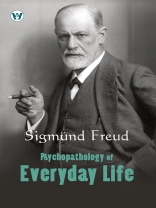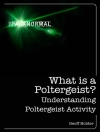Psychopathology of Everyday Life by Sigmund Freud is a seminal work in the field of psychology and falls into the genre of psychoanalysis. It is a non-fiction book that explores the hidden meanings and motivations behind everyday actions, slips of the tongue, forgetfulness, and other seemingly insignificant behaviours.
As the founder of psychoanalysis, Freud delves into the depths of the human mind, examining the unconscious forces that shape our thoughts and behaviours. In Psychopathology of Everyday Life, he presents case studies, anecdotes, and personal observations to demonstrate how seemingly minor actions can reveal underlying psychological processes and unresolved conflicts.
Through his analysis of slips of the tongue, forgetfulness, dreams, and other psychological phenomena, Freud uncovers the influence of the unconscious mind on our everyday experiences. He argues that these seemingly random occurrences can provide valuable insights into our desires, anxieties, and repressed thoughts.
By exploring the psychopathology of ordinary life, Freud challenges conventional notions of normalcy and emphasizes the significance of unconscious processes in understanding human behaviour. His groundbreaking theories and concepts laid the foundation for modern psychoanalysis and had a profound impact on the fields of psychology and psychiatry.
Psychopathology of Everyday Life remains a classic text in the field of psychoanalysis, offering readers a thought-provoking exploration of the hidden meanings and complexities of everyday actions. It invites readers to examine their own behaviours and thought processes, illuminating the intricate interplay between the conscious and unconscious mind.
Sigmund Freud
Psychopathology Of Everyday Life [EPUB ebook]
Psychopathology Of Everyday Life [EPUB ebook]
Придбайте цю електронну книгу та отримайте ще 1 БЕЗКОШТОВНО!
Мова Англійська ● Формат EPUB ● Сторінки 284 ● ISBN 9789360433550 ● Розмір файлу 0.7 MB ● Видавець Wordsworth Publishing House ● Опубліковано 2024 ● Завантажувані 24 місяців ● Валюта EUR ● Посвідчення особи 10222647 ● Захист від копіювання Adobe DRM
Потрібен читач електронних книг, що підтримує DRM












